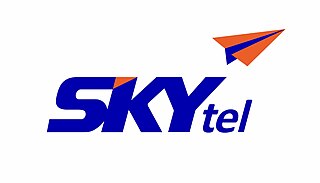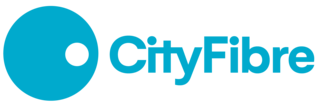In South Korea,telecommunications services improved dramatically in the 1980s with the assistance of foreign partners and as a result of the development of the electronics industry. The number of telephones in use in 1987 reached 9.2 million,a considerable increase from 1980,when there were 2.8 million subscribers.

The telecommunication infrastructure of Singapore spans the entire city-state. Its development level is high,with close accessibility to the infrastructure from nearly all inhabited parts of the island and for all of the population,with exceptions. Today,the country is considered an international telecommunications hub,an achievement that was driven by Singapore's view that high-quality telecommunications is one of the critical factors that support its economic growth.

SK Telecom Co.,Ltd.,abbreviated as SKT is a South Korean wireless telecommunications operator and former film distributor and is part of the SK Group,one of the country's largest chaebols. It leads the local market with 50.5 percent share as of 2008. SK Telecom is the largest wireless carrier in South Korea,with 27.019 million subscribers as of Q4 2017.

Internet Protocol television (IPTV),also called TV over broadband,is the service delivery of television over Internet Protocol (IP) networks. Usually sold and run by a telecom provider,it consists of broadcast live television that is streamed over the Internet (multicast) —in contrast to delivery through traditional terrestrial,satellite,and cable transmission formats —as well as video on demand services for watching or replaying content (unicast).

WiBro is a wireless broadband Internet technology developed by the South Korean telecoms industry. WiBro is the South Korean service name for IEEE 802.16e international standard. By the end of 2012,the Korean Communications Commission intends to increase WiBro broadband connection speeds to 10 Mbit/s,around ten times the 2009 speed,which will complement their 1 Gbit/s fibre-optic network. The WiBro networks were shut down at the end of 2018.

Network neutrality,often referred to as net neutrality,is the principle that Internet service providers (ISPs) must treat all Internet communications equally,offering users and online content providers consistent transfer rates regardless of content,website,platform,application,type of equipment,source address,destination address,or method of communication. Net neutrality was advocated for in the 1990s by the presidential administration of Bill Clinton in the United States. Clinton's signing of the Telecommunications Act of 1996,an amendment to the Communications Act of 1934,set a worldwide example for net neutrality laws and the regulation of ISPs.
A data cap,often referred to as a bandwidth cap,is a restriction imposed on data transfer over a network. In particular,it refers to policies imposed by an internet service provider to limit customers' usage of their services;typically,exceeding a data cap would require the subscriber to pay additional fees. Implementation of a data cap is sometimes termed a fair access policy,fair usage policy,or usage-based billing by ISPs.

KT Corporation,formerly Korea Telecom,is a South Korean telecommunications company. KT is the third-largest wireless carrier in South Korea,with 17.155 million subscribers as of Q4 2023.
LG Uplus Corp. (Korean:LG유플러스;stylized as LG U+,KRX:032640) is a South Korean mobile network operator owned by LG Corporation. It was formerly known as LG Telecom,but changed to its current name on July 1,2010. LG Uplus is the third-largest wireless carrier in South Korea,with 16.652 million subscribers as of Q4 2020.

Pakistan Telecommunication Company Ltd.,commonly known as PTCL is the national telecommunication company in Pakistan. PTCL provides telephone and internet services nationwide and is the backbone for the country's telecommunication infrastructure. The corporation manages and operates around 2000 telephone exchanges across the country,providing the largest fixed-line network. Data and backbone services such as GSM,HSPA+,CDMA,LTE,broadband internet,IPTV,and wholesale are an increasing part of its business.

Amis is an Internet service provider (ISP) in Slovenia,providing nationwide solutions for more than 105,000 domestic and business users with leading electronic communications and entertainment services. Company is situated in Maribor and Ljubljana. Amis was acquired by the A1 Group in 2015.
Internet access is widely available in New Zealand,with 94% of New Zealanders having access to the internet as of January 2021. It first became accessible to university students in the country in 1989. As of June 2018,there are 1,867,000 broadband connections,of which 1,524,000 are residential and 361,000 are business or government.

The Internet in the United States grew out of the ARPANET,a network sponsored by the Advanced Research Projects Agency of the U.S. Department of Defense during the 1960s. The Internet in the United States of America in turn provided the foundation for the worldwide Internet of today.
About 49 million people in South Korea use the Internet. The country has the world's fastest average internet connection speed. South Korea has consistently ranked first in the UN ICT Development Index since the index's launch. The government established policies and programs that facilitated the rapid expansion and use of broadband. The country has 97.6% of the population owning a smartphone,which is the highest in the world.

Gigabit wireless is the name given to wireless communication systems whose data transfer speeds reach or exceed one gigabit per second. Such speeds are achieved with complex modulations of the signal,such as quadrature amplitude modulation (QAM) or signals spanning many frequencies. When a signal spans many frequencies,physicists refer that a wide bandwidth signal. In the communication industry,many wireless internet service providers and cell phone companies deploy wireless radio frequency antennas to backhaul core networks,connect businesses,and even individual residential homes.

Skytel Group is a comprehensive Mongolian information technology service provider group company. Skytel Group first started its operations in 1999 as the 2nd operator of the market,and is one of the TOP 100 enterprises selected based on the number of employees,sales revenue,and the amount of taxes paid to the state.

Hellas Online was one of the leading Greek fixed-line telephony service providers based in Athens. Founded in 1993,Hellas Online (hol) was one of the first Internet service providers in Greece offering public dial-up Internet access. It evolved from an ISP to a fixed-line telecommunications services provider offering a broad range of retail,business and wholesale services. Since 2006 it became a member of the Intracom Holdings group. Before its dissolution,following its merger,with Vodafone in 2014,it had 531,563 LLU subscribers.

Broadband is a term normally considered to be synonymous with a high-speed connection to the internet. Suitability for certain applications,or technically a certain quality of service,is often assumed. For instance,low round trip delay would normally be assumed to be well under 150ms and suitable for Voice over IP,online gaming,financial trading especially arbitrage,virtual private networks and other latency-sensitive applications. This would rule out satellite Internet as inherently high-latency. In some applications,utility-grade reliability or security are often also assumed or defined as requirements. There is no single definition of broadband and official plans may refer to any or none of these criteria.

Arbor Networks is a software company founded in 2000 and based in Burlington,Massachusetts,United States,which sells network security and network monitoring software,used –according to the company's claims –by over 90% of all Internet service providers. The company's products are used to protect networks from denial-of-service attacks,botnets,computer worms,and efforts to disable network routers. The service employs port scanning from the IP range 146.88.240.0/24 in which threats are being detected.

CityFibre is an independent British telecommunications network provider,providing gigabit-capable FTTP broadband across the UK. They are the third-largest network provider in the UK,after Openreach and Virgin Media. It is considered one of the UK's "altnets",in reference to being an alternative to Openreach.
















